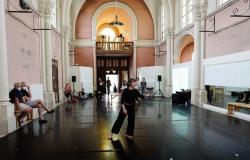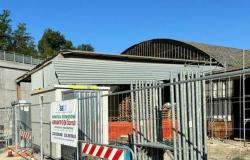A clear, abrupt and unexpected decline. On the first day of voting in the municipal run-offs, turnout drops. Almost seven percentage points less than in the first round, according to data from 7pm: 27.89% of voters went to the polls, compared to 34.79% two weeks ago.
The threshold remains well below 50 percent, with an inverse result compared to the European elections, when the territorial vote held up – in terms of turnout – compared to the opinion vote for the European Parliament. A total of 102 Municipalities have returned to the polls, which will remain open until 3pm tomorrow.
The stakes
Among the many cities hanging on the ballot, three are central to the political clash: Florence, Bari and Perugia. And here too the turnout factor could make the difference. As Lorenzo Pregliasco, director of Youtrend, explained on the eve, especially in the second round of the municipal elections, “whoever manages to mobilize the most” wins. Since these are three “red” strongholds, historically in the hands of the centre-left, it cannot be ruled out that the first data on turnout startled the centre-right, which instead decided to take away the forts in the territory from its rivals.
In Florence the two-way choice falls between the dem candidate Sara Funaro, supported by the entire “wide field” and thanks to the support received from the Five Star Movement in the second round, against the unitary candidate of the centre-right, the former director of the Uffizi Eike Schmidt. Separated by almost ten percentage points from the vote a fortnight ago: 43% Funaro, 32.8 Schmidt. Here, in the Tuscan capital, the evening turnout figure is within the national average: 28.67 is the percentage of voters who have already put their ballot in the ballot box at 7pm.
The collapse in the South
However, turnout was well below average in the Apulian capital of Bari, administered until now by mayor Antonio Decaro, candidate and elected to the European Parliament from the ranks of the Democratic Party. Few voters lined up at the polls this Sunday: only 18.53 percent at 7 pm.
Here the duel will be between Fabio Romito, the Northern League candidate supported by the government majority who received 29% in the first round, and Vito Leccese, the name chosen by the dems and also supported here by the Five Star Movement, after the defeat on 9 June of their candidate Michele Laforgia. The voting procession proceeds slowly. Amid controversy – Romito denounces irregularities at the polls and “pre-filled ballots” for the centre-left – and some off-field jokes, “I voted to become a former mayor” joked Decaro.
The challenge in Central Italy
Perugia, it was said, is the third major center in the run-offs. With a figure opposite to the trend: here in Umbria the turnout at the polls was very high, 38.05% in the evening, the highest voting figure among the provincial capitals. It will be a close race, judging by the two challengers. In the first round the centre-right and civic candidate Margherita Scoccia lost by less than one point to her rival chosen from the centre-left and civic lists Vittoria Ferdinandi: 48.3% against 49 percent. It is likely that the margin will also be narrow in this Monday’s count. Meanwhile, both voted in the same polling station in Borgo XX Giugno, in two different sections of the same school.
The Potenza case
The turnout in Potenza was average: in the Lucanian capital, which sees Francesco Fanelli competing for the centre-right and Vincenzo Telesca for the centre-left, 27.3 per cent of voters went to vote by 7pm. The same is true in Campobasso, Molise: 25.76 percent. Higher in Lecce, in Puglia – 31.5 percent – where the former minister Adriana Poli Bortone for the center-right and the outgoing mayor Carlo Salvemini for the progressive camp are competing for the municipality. Meanwhile, the vote in Lecce hit the headlines due to a strange unscheduled event: a young voter went to vote at the Quinto Ennio high school accompanied by a sheep, filmed by those present in disbelief.
© ALL RIGHTS RESERVED
Read the full article at
The messenger






